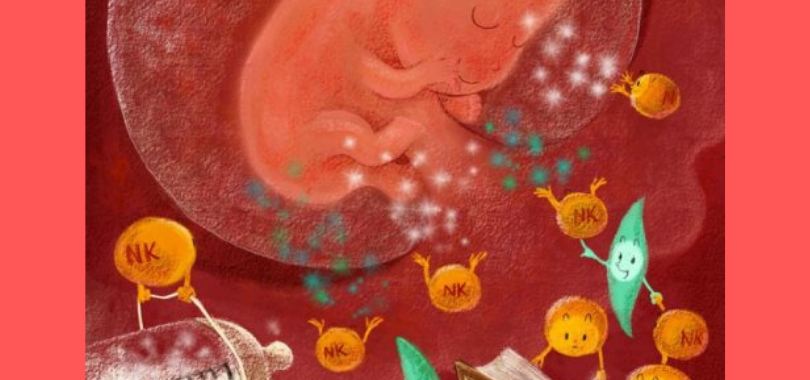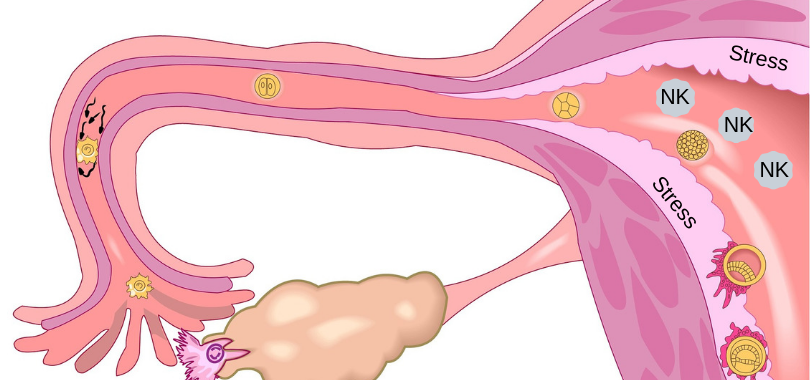One of the things that I see not managed very well is pain. I think much of this comes around a perception that we should be able to manage pain with over the counter medications and some of it is also not really knowing what to do, if what we are doing for ourselves, or are currently doing, isn’t working. Some of it is also that healthcare practitioners aren’t managing it well either.
Now, before I start talking about pain, and so that people understand where I am coming from, I need for people to know one thing. Everyone’s pain levels are different and everyone’s cause of pain is different too.
I also know what it is like to live with pain daily and manage a chronic condition that causes pain and affects one’s life. So I understand pain and understand it well and I sympathise with anyone who is in pain. So I just ask for people to take the personal out of this, just listen and hear what I am going to say.
Again I have lived with chronic and acute pain daily and I know what it is like and I have loved ones who have to manage it daily as well. So what I am about to talk about is coming from a place of caring, wanting to help and also knowing how to manage pain on a clinical level as a healthcare professional.
Every day I see people posting in closed groups asking for help with pain and things they can do to manage pain. It breaks my heart hearing what some people put up with, or if I see they aren’t being told the right thing, or being clinically managed properly.
Often I see people putting up with pain because they fear going to the hospital, seeing their specialist, seeing someone else, or that they should be able to handle it themselves.
No matter what, constant and acute pain is not good for the body and it also means that there is something wrong and it needs to be attended to. The longer pain is there, the more damage it does to your body on a cellular level. Long term pain causes cellular death and disrupts nerve pathways, pain pathways and emotional pathways to the brain too. This is why proper pain management is so important.
The thing is, pain needs to be managed, just like any other health issue, and if it isn’t managed, or managed well, then it can really affect ones physical and emotional wellbeing. I know people will say that long term medication isn’t good, and it isn’t, but long term unmanaged pain can be far more detrimental than any long term medication. It truly is a catch 22 situation.
When pain gets to a point where over the counter medications aren’t working, or even some prescription medications aren’t working, then something needs to be done about it.
This either means surgical intervention, or it means that you need stronger medications and you need this in the form of proper medical management of that pain.
It may also means other therapies and treatments outside of what you are currently using and being managed with. It also requires working on the emotional pathways that may also be exacerbating pain. This is why talk therapy and working on emotions is such and important aspect of pain management. You need that multimodality approach for proper effective pain management.
Many times when I hear that people are in pain, one of the things that stops them doing anything is that they perceive that nobody is going to help them because what they themselves have tried, hasn’t worked.
I wish I could get it through to people in pain, that the best thing they can do is go and get the pain managed properly. This often means a trip to the nearest hospitals emergency department and I think this is where people then talk themselves out of it. It is always better to go and be managed properly, than sit at home still in pain. Once pain is managed properly, then you need to see someone who can help your pain, and your condition properly moving forward.
When people come to see me and then I have to refer them for surgery, one of the things I always talk about and have an action plan for is pain management. I always tell my patients to properly manage pain after surgery and even do precautionary pain management post-surgery.
I always give my patients a handout and action plan for pain management, whether they need it or not. After surgery there is often a bit of illusion state around pain, because there have been anaesthetics used and other heavy duty sedatives. So often people wake up in recovery and think the pain isn’t as bad as it is, because it is being masked from the anaesthetics.
Then they go home and don’t bother to keep up their pain meds and then the pain kicks in and then it is really hard to get back on top of it again once it starts. Once the pain cascade starts, then it is really hard to then try and get back on top of that pain yourself.
This is why it is always good to take precautionary pain medications for a few days (or longer) post-surgery and then taper them down and start using some other alternatives to manage the pain. I’ll discuss some great alternatives for pain management later on, but for now, let’s just talk about the medical and pharmaceutical options.
The basic same principles also apply to people who have flare ups with pain, or have chronic, or acute pain. It needs to be managed and it needs to be managed as soon as possible. The longer you are suffering in pain, the harder it is to treat and get under control.
Sure, try all the conservative treatments for pain such as over the counter medications, herbal medicines, acupuncture, yoga, meditation etc, but if those aren’t working well enough, or aren’t working at all, it is time for medical intervention. The same goes in reverse too. You also need to look at the emotional aspects and cause of pain too. Again, you cannot treat one without the other.
Sometimes the body has been in pain that long, that you also need to turn that response off, because it has actually become a habit, rather than the body actually still being in pain. This one is a bit tricky to explain to people, but in essence what we need to do is actually tell the body it isn’t in pain any longer, so that it switches off that response in the brain.
Getting back to acute pain, and when pain is getting out of control, this is where I need people to listen. Many times I see people posting in groups, telling their support group and that they are in pain and saying things like that they feel it would be pointless to go to the hospital, as they usually do nothing to fix their issue.
The thing is sure, emergency departments aren’t there to fix chronic conditions, but, they are there to help you get out of pain, or patch you up, and then refer you on for appropriate management if need be.
Now, before I talk about this next bit, if you are in acute pain and do not know what it is from, you need to go and get that pain looked and get it under control. You can either consult with your healthcare provider (GP etc), or go to your nearest Emergency centre.
Speaking about emergency centres and hospitals, I need to let people know that there is no shame in going to these places to get your pain under control properly.
I also need people to know that emergency centres (A&E) are not there to fix your long term issue. They are there to assess imminent danger, control pain etc and then patch you up and refer you on to other specialists in the field of what your particular issues is. That is it.
All too often people do have a perception that if they turn up to emergency department, their long term health issue is going to be fixed. That is not their job. Again they are there to assess danger, control pain, stop your dying (if that is needed), then refer you on for appropriate management.
Sometimes that means staying in hospital until you are stabilised. All too often I hear people saying that they went to emergency and they did nothing. Well, I doubt they did nothing. They would have assessed you, medicated you (if necessary) and if your condition isn’t life threatening, you would most probably be sent home. That is what they do.
This gets me back to those in pain and are trying to talk themselves out of going to hospital, because apparently, through past experience, or someone has wrongly told them, that they won’t be able to help you. This is wrong.
If you are in acute pain, you are best going to your closest emergency centre, where trained people, not our untrained internet buddies, can assess you properly and then help you with pain and stabilise you.
If all emergency do is control your acute pain and make sure you aren’t dying and are stable, then they have done their job. Controlling someone’s pain can actually stabilise the body in more ways than one. Once that pain is stabilised, then what you need to do is ask them for medications to be continued to actually help with the pain cycle.
You can also continue on with previously prescribed medications to control that pain, now that stronger medications have been administered and your pain levels have lowered. This then buys you time to see your regular healthcare provider as soon as possible and talk about a better pain management plan.
If that said provider isn’t managing you properly, then you need to get a second, or third, or tenth opinion. Look, every profession has people who are not good at their job and some healthcare professional are crap at things like pain management. So, find someone who can help you with ongoing pain management. If you can’t find someone, then message me for details of someone who can. Better still, book in a consult to see me, where I can assist you and your condition and help you get the best help, advice, care and proper health management possible.
There are now also some pain modulators (neuro-modulators) and implants that are being used to control pain too. People are also getting great results with botox and other injectables. There are many options for pain management now and as said before, it does require seeing the right people and also using a multimodality treatment approach.
This also requires working on the emotional aspect too. Yes, I am mentioning it again so people finally get that we also need to deal with the emotions, if we are to manage pain properly.
Last but not least, sometimes you need to look outside the medical model, for help with pain. Actually I believe it is essential. Sure, get your acute pain managed with medical intervention, but you may also need to look at complementary medicines for ongoing pain management, especially chronic long term pain.
No medicine has all the answers, so this is why I am very passionate about people using a multimodality approach to their health issues and especially for pain management. I always say to people that if what you were doing currently is helping, then you wouldn’t be in pain and if you are still in pain, it means you need to change something, or look at other ways to manage it. Unfortunately while modern medicine saves lives and can help us in so many ways, it doesn’t have all the answers either.
If you aren’t getting the help you need, then book in a consult with me and I will do my best to get you the help and care you deserve and should be getting. I also have a great network of trusted professionals I work with if it is outside something that I do, or if you need that team approach for your condition. I have my trusted team and that is what you may need too.
One more thing, for anyone, pain is the sign that something is wrong in the body and means it needs to be addressed. Oh and always remember, period pain is not normal either.
Take care
Regards
Dr Andrew Orr
-Women’s & Men’s Health Advocate
-No Stone Left Unturned
-The Women’s Health Experts










